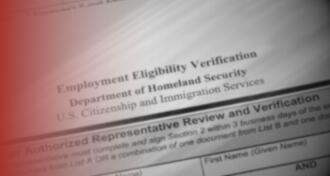This past week, U.S. Immigration and Customs Enforcement (ICE) agents conducted coordinated enforcement operations across major cities in North Carolina, sparking public outcry, widespread fear, and significant political backlash.
This federal immigration crackdown, known as "Operation Charlotte's Web," has been highly concentrated in Charlotte, Raleigh, and surrounding areas. Federal immigration agents have already arrested hundreds of people statewide. This series of aggressive immigration enforcement operations continues to sweep across the state, leaving many employers uncertain about their rights and responsibilities. Many businesses have temporarily closed because employees feared coming to work.
Below is a framework for employers to protect their businesses, employees, and legal obligations during this unprecedented period of heightened immigration enforcement.
Recent Policy Changes Driving Enforcement
Several recent policy changes have contributed to the current enforcement climate. One significant change with implications for the workplace was the termination of the Cuba, Haiti, Nicaragua, and Venezuela (CHNV) Parole Program. Under this program, certain individuals from the four countries were given permission to live in the United States for a period of up to two years, provided they had a financial sponsor. The intent of the program was to allow parolees to seek humanitarian relief and enter the workplace.
The Department of Homeland Security (DHS) terminated the program, and the Supreme Court upheld the decision. Individuals without a lawful basis to remain in the United States were informed their parole was terminated and their parole-based employment authorization was revoked.
The notices were sent to the email address on file with U.S. Citizenship and Immigration Services (USCIS), and notifications were also sent to employers through E-Verify. This direct notification to employers signaled that enforcement actions would be taking place, and continued compliance issues could prove problematic for businesses.
Another recent change related to Haiti involved the termination of the country's Temporary Protected Status (TPS). DHS argued that Haiti no longer met the standards for TPS designation. The status was set to expire on September 2, 2025, but a recent court injunction blocked the termination, extending the deadline to February 3, 2026. An important step for employers is to update the expiration date on any applicable I-9 forms to reflect this extension.
These policy shifts have created uncertainty for both employers and employees, making it critical for businesses to understand their obligations and rights during ICE investigations and enforcement actions.
Understanding ICE's Authority
The primary responsibilities of ICE are to prevent the hiring of unauthorized workers, verify employment eligibility requirements, and enforce the completion of I-9 forms. ICE has several investigatory tools at its disposal, three of which are notices of inspection, search warrants, and subpoenas. Each has a different set of procedures and requirements.
Employers should understand the nuances of these ICE investigatory tools to mitigate risk.
For a notice of inspection, which is essentially a review of I-9 forms, ICE is required to provide advance notice of three days. Delivery methods include certified mail, hand delivery, or overnight delivery. There is no grace period, so employers must check their mail regularly. Employers should only maintain I-9 records for employees, not contractors.
Warrants and subpoenas can be triggered if ICE receives information that unauthorized employment is an issue, if there is suspicion the employer is hiring ineligible workers, or if there is a reason to seize documents and search a specific workplace. There is no grace period with warrants or subpoenas. These inspections are unannounced and will involve multiple agents. Agents can seize documents, computers, and devices, and they can also detain unauthorized workers.
There are two types of warrants: administrative warrants and judicial warrants.
Administrative warrants generally only apply to public spaces, such as parking lots, lobbies, and reception areas. Judicial warrants authorize access to the specific areas described in the warrant, and there can be serious consequences for refusal. The details associated with subpoenas are similar.
Understanding the distinction between these investigatory tools is essential. A notice of inspection provides employers time to prepare and ensure their I-9 documentation is in order.
However, warrants and subpoenas arrive without warning, making advance preparation and established protocols even more critical.
Response Protocols
If your company has been served a subpoena or a warrant, make a copy of it or take a picture immediately. Ideally, you will have already designated a person to handle these situations. That person should be contacted immediately, and you should inform the agents that company policy requires that person to be reached before they can proceed.
Be aware that this strategy may not work if the designated person is unavailable or if the agents refuse to wait.
In that case, verify the signature on the warrant or subpoena, the expiration date, and the scope of the search, including the items authorized for seizure.
Pay close attention to any limitations specified in the document, as agents should only be granted access to physical areas and company records or materials explicitly described.
Best practices for your company to adopt during the search include:
- Documenting everything that could potentially be relevant, such as the names of the agents, their badge numbers, the time of arrival and departure, and the items seized
- Shutting down operations in the search areas and providing a safety orientation for the agents to demonstrate cooperation and ensure workplace safety
- Having a company representative follow each agent to take notes and record videos, creating a contemporaneous record of the search
- Asking to make copies of documents that are seized and explaining why those documents are vital to your operations, which may help expedite their return
- If the agents attempt to seize documents that have attorney-client privilege, asking to have your attorney consulted before an inspection
- If the agent insists on inspecting the document, not obstructing their investigation while documenting your objection clearly and in writing
These protocols serve dual purposes: they demonstrate good faith cooperation with law enforcement while also protecting your company's interests and creating a detailed record should any disputes arise later.
What Employers Should Never Do
General prohibitions that can land employers in hot water include hiding employees or assisting with unauthorized departures, providing false information or denying the presence of named individuals, and shredding, hiding, or destroying documents. These actions can transform a routine inspection into a criminal investigation and expose the company to significant legal liability.
Employers should advise managers to never:
- Offer statements to federal agents without attorney consultation
- Submit to questioning before consulting the company attorney
Do not direct non-managerial employees to refuse to speak to agents. However, it is permissible to inform staff that they are not obligated to submit to questioning, that they can choose whether to speak with agents, and that the company will not retaliate regardless of their choice.
This distinction is important: employers should not obstruct the investigation but can ensure employees understand their rights.
An outgrowth of this advice is to remain courteous and professional throughout the process. Employers should not interfere with or obstruct the agents.
Further, it is advisable to document objections and take note when agents proceed despite objections. This documentation can prove invaluable if legal challenges arise.
Employers should also comply with commands if the agents claim exigent circumstances and maintain detailed records of all interactions. The record should include dates, times, names, specific requests made by agents, and the company's responses.
Preparing for Future Enforcement Actions
Given the current enforcement climate in North Carolina, employers should take proactive steps to prepare for potential ICE actions.
This includes conducting internal I-9 audits to identify and correct any documentation deficiencies, establishing clear protocols for responding to ICE visits, training managers and human resources staff on proper procedures, and designating specific individuals to serve as the company's point of contact during enforcement actions.
Employers should also consider consulting with immigration counsel to ensure compliance with all applicable laws and regulations. The current enforcement environment makes it more important than ever for businesses to have expert legal guidance readily available.








